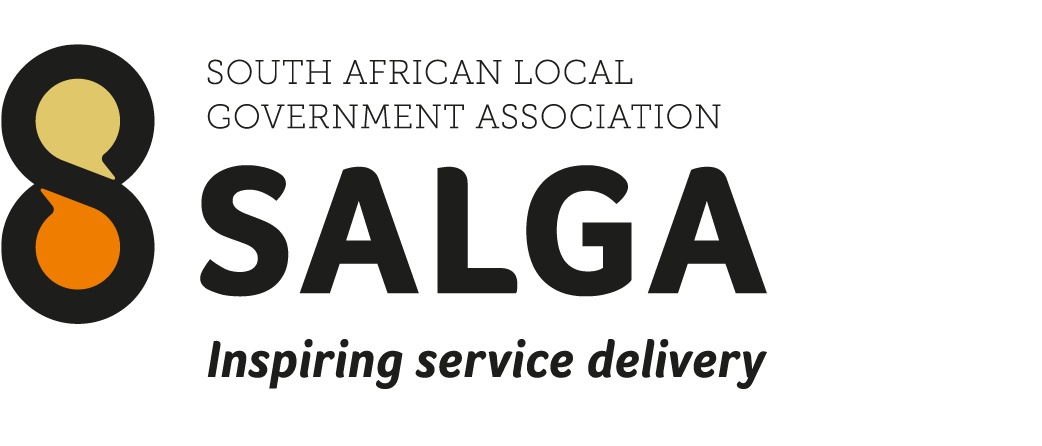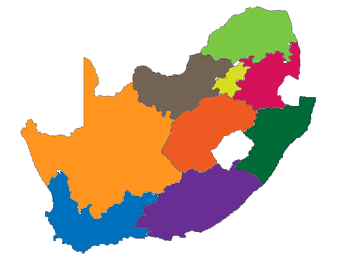
 |
 |
 |
 |
||||
 |
 |
 |
 |
 |
MUNICIPALITIES: About Municipalities |
SALGA TV |
 |
||||||||||||
Social Media |
 |
||||||||||||
Follow Us on Social Media
|
|||||||||||||
Upcoming Events |
 |
||||||||||||
Salga Provincial Conferences 2016 For Delegates and Exhibitors registration forms please click on respective province and links below:
For more information please click here |
|
||||||||||||
Municipal Human Capital Support Registration |
 |
||||||||||||
Please click below to register and acces SALGA Municipal Human Capital Support Documents. |
|||||||||||||
Municipalities |
 |
||||||||||||

|
|||||||||||||
The History
Prior to the Constitution of the Republic of South Africa of 1996 and preceding the transition to democratic local government, local authorities, as they were then known, were mere creatures of statute created by provincial governments. Although the different provincial ordinances led to a variety of procedures, structures and processes, the municipalities, established in terms of the ordinances had a common feature. Because of their lack of constitutional status, they were creatures of statute, and possessed only such rights and powers as was specifically or impliedly granted to them by the legislature. It rendered all their actions, including the passing of by-laws, administrative actions, subject to judicial review. Municipalities, it can be said, thus existed at the mercy of the provinces.
The Transformation process
In 1990, when the process of democratisation began with the unbanning of liberation movements, local governments were subordinate creatures of statute, comprising a multiplicity of fragmented institutions, racially segregated, which, as a result, provided massively unequal services to different communities. The transformation of local government was directed at removing the racial basis of government and making it a vehicle for the integration of society and the redistribution of municipal services from the well-off to the poor.
This process occurred in three phases:
- The first, pre-interim phase commenced with the coming into operation of the Local Government Transition Act 209 of 1993 (LGTA) and the establishment of the negotiating forums in local authorities pending the first local government election.
- The second phase began when the first local government elections were held in 1995/1996, establishing integrated municipalities although these were not yet fully democratically elected.
- The third and final phase commenced with the local government election on 5 December 2000, establishing the current municipalities. Underpinning the transition process were the interim Constitution of 1993 and the final Constitution of 1996.
Local government in South Africa entered a new era with the adoption of the 1996 Constitution. The Constitution introduced, for the first time in our history, a wall-to-wall local government system by providing that municipalities ‘be established for the whole of the territory of the Republic’.
One of the major innovations of the 1996 Constitution was the elevation of local government to a sphere of government, firmly establishing local government’s autonomy. A municipality now had the right to govern, on its own initiative, the local government affairs of its community. This means that while national and provincial governments may supervise the functioning of local government, this must be done without encroaching on the institutional integrity of local government. The Constitution further allocates the functional areas of local government competency in Schedules 4B and 5B.
The Constitution introduced three categories of local government:
- Single tier Category A municipalities
- Two-tier local government in Category B and C municipalities where a Category C municipality shares jurisdiction with a number of Category B municipalities. A metropolitan municipality has exclusive municipal executive and legislative authority in its area.
Subsequent to the adoption of the Constitution, a comprehensive policy was developed to give effect to the new constitutional vision of local government, which led to the adoption of the White Paper on Local Government by Cabinet in March 1998. The White Paper spelt out a framework and programme which would radically transform the existing local government system. The cornerstone of the White Paper was the notion of developmental local government, which was defined as “local government committed to working with citizens and groups within the community to find sustainable ways to meet their social, economic and material needs and improve the quality of their lives.”
Currently the developmental mandate of local government is effected through metropolitan municipalities in the eight largest urbanised and industrialised centres in the country. They are charged with addressing the key challenges outlined in the White Paper on Local Government, namely, the legacy of urban apartheid by establishing a basis for equitable and inclusive metropolitan governance and development. They have legislative competence over all the areas listed in Schedules 4B and 5B.
Outside the metropolitan areas, the local government mandate is pursued by two-tier local government: 228 local municipalities grouped into 44 district municipalities, sharing the functional competencies listed in Schedules 4B and 5B. The allocation of responsibilities between the two tiers of local government is prescribed by the Municipal Structures Act of 1998, which must take into account need to provide municipal services in an equitable and sustainable manner. The Structures Act (as adjusted by MECs) does so by allocating district municipalities’ functions with those not listed then falling in the purview of local municipalities.
The transformation of South Africa from a society rooted in discrimination and disparity to a constitutional democracy founded upon freedom, dignity and equality posed, and continues to pose particularly profound challenges at local government level. It is here that acute imbalances in personal wealth, physical infrastructure and the provision of services were and are often most patent. The establishment of non-racial municipalities has not eliminated the divisions of the past, the provision of services and the distribution of resources are thus the challenges that the legacy of apartheid poses to local government.
Given the fact that poverty is experienced locally, municipalities are confronted daily with the consequences of apartheid. As a result, a large part of the burden of addressing this falls upon local government, as it is the provider of primary services which are essential to the dignity of all who live in its area of jurisdiction. Thus, local government is the key site of delivery and development and is central to the entire transformative project of the new South Africa. It is therefore a key mandate of local government (with the support of provincial and national government) to eliminate the disparities and disadvantages that are a consequence of the policies of the past and to ensure, as rapidly as possible, the upgrading of services in the previously disadvantaged areas so that equal services will be provided to all residents.